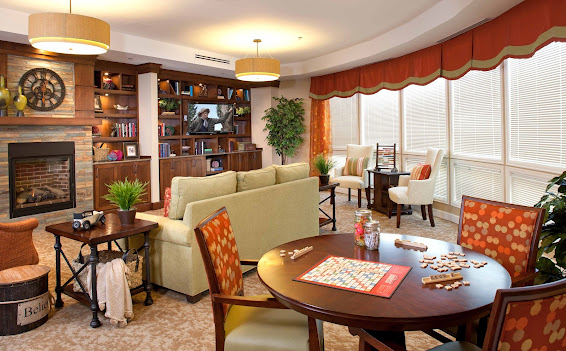Diabetes is a common condition, especially among seniors, and catching early symptoms can make a big difference. With a proactive approach, seniors and their families can recognize signs early, leading to better management and improved health outcomes. Being informed about these early indicators of diabetes is important for residents in retirement homes Glendale as well as their loved ones, helping them feel more confident about their health.
Common Early Symptoms of Diabetes
Some early symptoms of diabetes can be subtle, but being able to identify them may lead to early intervention and care. Here are a few signs to watch for:Increased Thirst and Frequent Urination
When blood sugar levels rise, the body tries to remove excess glucose through urine, which can lead to frequent trips to the bathroom. This process can cause increased thirst, as the body loses more water than usual.Unexplained Fatigue
Feeling unusually tired or lacking energy can sometimes be a sign that the body isn’t properly converting glucose into energy. For seniors, fatigue can be a common issue, but when paired with other symptoms, it may be worth exploring further.Blurred Vision
High blood sugar can cause the lens of the eye to swell, leading to blurry vision. If a senior experiences sudden changes in their vision or frequently complains of blurry sight, it could be an early indicator of diabetes.Slow-Healing Wounds
Cuts or bruises that take longer than usual to heal might suggest high blood sugar, which can affect circulation and reduce the body’s ability to heal.Our resident Alice in senior living Glendale AZ noticed her energy levels were lower than usual and that a small scratch on her hand took over a week to heal. Her daughter encouraged her to speak with her doctor, who then tested her blood sugar. Catching these signs early allowed Alice to make lifestyle changes that helped manage her blood sugar levels.
Steps to Take if Symptoms Are Present
If any of these symptoms arise, it’s essential to check in with a healthcare professional. Many doctors will conduct a simple blood test to measure blood sugar levels and assess for prediabetes or diabetes. Early diagnosis can open the door to treatments, lifestyle changes, and monitoring, helping seniors manage diabetes more effectively.In our community, many residents receive regular health check-ups, which can include monitoring blood sugar levels. These check-ups provide peace of mind for both seniors and their families, as early detection leads to better management.
Tips for Reducing Diabetes Risk
Prevention is key. For seniors, small lifestyle changes can go a long way in managing blood sugar and reducing the risk of diabetes:- Eat a Balanced Diet: Focus on meals with fiber-rich vegetables, lean proteins, and whole grains, which help maintain steady blood sugar levels.
- Stay Active: Gentle activities like walking, yoga, or even gardening can improve insulin sensitivity and keep blood sugar stable.
- Monitor Blood Pressure: High blood pressure can also increase the risk of diabetes, so keeping it in check is essential.
.jpg)
.jpg)
.jpg)

.jpg)


.jpg)
.jpg)



.jpg)


.jpg)



.jpg)


